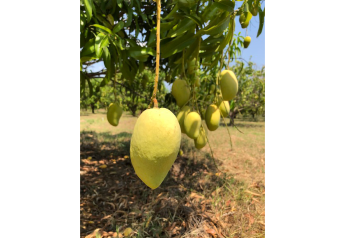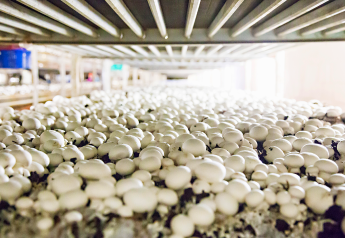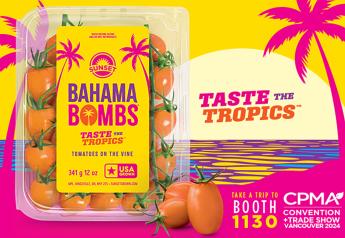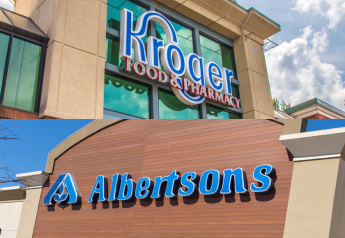The delicate dance between store and grower brands

In one corner of the ring awaits the longtime champion, National Brand of Produce. This hulking specimen sometimes goes by the name Grower-Shipper Label or Consumer Brand. Across the boxing ring in the other corner is up-and-comer Retail Brand, nicknamed Private Label or Store Brand.
The two players stretch, hop and jab as they prepare for the daily fight to win the grocery shopper’s dollar. But sssssshhhhh … sometimes they’re on the same side — without the spectators’ knowledge.
The savvy marketing we see in consumer brands today was born in the 1950s and 1960s.
“A brand is the contract between a company and consumers,” Marc de Swaan Arons said in his The Atlantic article, "How Brands Were Born: A Brief History of Modern Marketing." And just 30 years ago, most retailers did not even have a proper marketing department, he said. But these days, retailers know this is an opportunity not to be missed.
Retailer brands
Store brands don’t have the same clout and fan base as grower-shipper labels, but they’ve been making gains the last several decades. In 2020, these private retailer labels of all grocery products won unprecedented double-digit dollar gains, according to the 2022 Private Label Report from the Private Label Manufacturers Association. Released Feb. 16, the report is based on IRI data and includes fresh produce.
In 2021, store-brand sales took a roller coaster ride: Up, down, up again, finishing at a record $199 billion in all U.S. grocery channels.
In the eight largest departments that IRI tracks, the 2021 dollar sales of store brands grew in six — and by far, the sharpest increase was in produce. The produce department’s store brands grew by 11.4%. The next-highest growth was beverages at 2.7% growth.
“It’s affirmation that retailer brands are an important piece of the U.S. grocery business, especially in these challenging times,” association President Peggy Davies said in the report. “We believe store brands will be a key consumer ally during this current inflationary period and going forward by providing high-quality, high-value products in every category.”
The growth of private label products has boomed as retailers seek to build brand recognition for their offerings of organic items, according to an Organic Produce Summit news release.
“When private labels started as a price value proposition to offer consumers, few could have predicted its evolution to outpacing national brands in 2021,” marketing firm GoldenSun Insights Co-Owner Randy Riley said in the release.
Fresh Thyme Market carries both private and consumer brands, said Tom Hanyzewski, assistant produce director for procurement of the Downers Grove, Ill.-based store with locations in 10 Midwestern states.
But the store is always looking for opportunities to grow its private label, he said.
“There is some demand from our core customer base that likes our private label,” Hanyzewski said. “We, as a retailer, have our own packers and are consistent. Sometimes we use a national supplier, and sometimes we have a specialty supplier that others don’t have.”
Fresh Thyme Market can keep close control over its quality standards with its own label. “And I think our customers like that,” he said. “We’ll do taste tests.”
The retailer focuses on key high-velocity items for its private label. It won’t do apples because there’s so much variety, from Washington to New York to New Zealand. And Fresh Thyme’s organic carrots and mushrooms are sold by shipper labels because of costs.
“Eventually, we’ll probably go there,” Hanyzewski said.
Grower-shipper brands
Consumer brand marketers, however, believe a consumer’s ability to know where the product is coming from and who grew it provides benefits private labels don’t have.
EarthFresh Organic, based in Toronto and Atlanta, sells produce with both grower-shipper and private retailer labels, said Andrew George, senior director of sales.
“Sometimes they sit side by side on the shelf,” George said.
In the last 10 years, there’s been more of a push for private label, he said. But it depends on the volume for it to make sense for his company to meet that request.
“The retailer, they want it, and it’s a juggling act. You have to weigh it out. It’s hard on us on efficiencies, and of course, they want it at a better price, and it’s the same quality product, and sometimes they even want a recipe from us,” George said.
Some retailers just want private label produce. Other stores just want branded. “It’s whatever the customer wants,” he said.
Food branding agency FoodMix conducted an online survey of 1,001 primary grocery shoppers in June 2021 of all different demographics, income levels and ages from Generation Z to boomers.
The study showed 68% of shoppers will pay more for branded produce.
Brands have a halo effect: Consumers trust established produce brands to be more consistent in quality (46%), be made to higher standards (41%), be fresher (34%) and be safer (26%).
Yet, surprisingly few produce brands have achieved “brand love,” FoodMix CEO Dan O’Connell said.
“One of the challenges of these brands is simply availability. Make it available, and they will come and buy,” O’Connell said. “Brands, they’re trending up, and consumers want more of them and more from them.”
“Very few produce brand powerhouses exist. There is room at the top.”
While produce as a category doesn’t lead on taste associations, loved produce brands do, he said.
Grower-shipper brands can make a case to retailers to choose their label over the store brand by testing it in a few stores in affluent, urban or diverse areas. Then, read the metrics. Don’t just promote it as a deal, which can sometimes act against brand loyalty, he said.
“Ultimately, selling more produce is a win-win for retailers and for brands (rather than private label),” O’Connell said.
Consumer brands need to go beyond slapping a label on their produce.
They need to satisfy consumers’ unmet needs: More selection, varieties, packaging and information are at the top of the list.
“Authentic stories matter in fresh produce,” O’Connell said. “What the market is telling us is we need to add value to build brand love. Adding value coupled with your story will give you growth over time.”







